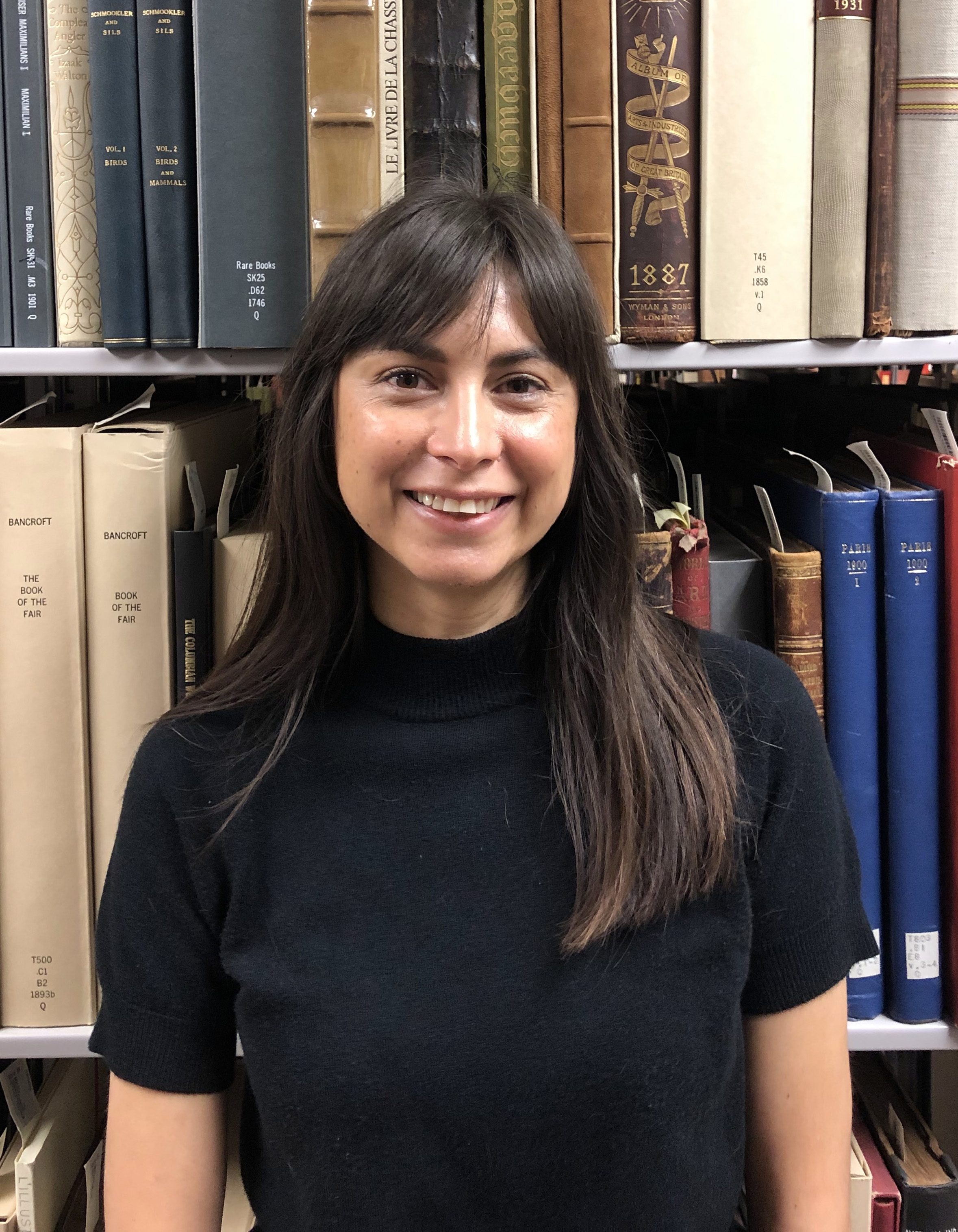This post is the third in a series highlighting our recently-elected Section leadership.
Angel Diaz (she/her/hers) is the University Archivist at Penn State University. In this role since 2018, she identifies, acquires, and maintains records of enduring value that chronicle the development and experiences of the Penn State community. She earned her MLIS from the University of California Los Angeles. She served on the 2020 SAA Annual Meeting Program Committee and was Co-Chair of the Archivists and Archivists of Color Section (2016-2018). She is a participating member of Project STAND and is a current fellow in the Association of Research Libraries’ Leadership and Career Development Program (2020-2021).

Why or how did you find your way to becoming an archivist?
As many people do, I started working with archival materials through an undergraduate internship–at the California Historical Society. I helped organize their extensive California newspaper collection by county. Not only did I love learning about the state, but found myself thinking a lot about why we were keeping and organizing the newspapers in this way. However, even while working there I had no idea one could become an archivist. I started working as a middle and high school humanities teacher. A short time later, my friend took on a job at the Bancroft Library (UC Berkeley), told me she was going to get her MLIS, and invited me to study for the GRE with her. It was an exciting jump to a new profession. In our graduate program, I found my place learning about how archivists can facilitate engagement and learning with historical materials to audiences of all ages and communities.
Can you share a success you’ve had in your repository recently?
It’s taken some planning and extra work but I have been pleased with some recent collaborative outreach and engagement efforts, including shifting from developing a physical exhibition to a digital exhibition and zine workshops for student organizations. The zine workshops have all taken place on Zoom, but a small group of colleagues and I have been able to prepare physical zine supplies packets that we mailed to the students to have ready for the meeting date. The packets include paper, sample zines, and reproductions of archival materials for the students to cut up and include in the zines they create. We invite specific student organizations and base the theme of the zines on that group’s mission and focus. The workshops provide a space for creative thinking, while highlighting collection materials and making a connection with leaders from student organizations.
What current or future project are you most excited about in your archives?
I am very excited about a student-led oral history initiative currently taking place. It started with a seminar course I was embedded in last spring. Students in this course took on research projects with University Archives materials on their chosen topic around Penn State history. One student conducted research on African American student activism in the late 1960s and early 1970s. She was eager to learn as much as she could on the topic. I provided archival materials and other resources, and the professor put her in touch with a Penn State alumnus who graduated in 1970 and had been active in various social and political efforts. The student interviewed the alumnus for her research paper and through the conversation learned of additional African American alumni who had also been activists on campus.
At the conclusion of the course, the student reached out to me to share that she wanted to speak to the other alumni in order to bring more resources for our collections. We quickly developed an oral history project she could take on–and I was able to advocate for a paid position for her to do this project. The work would all be done remotely over Zoom because this all started alongside the pandemic. We met regularly to discuss best practices and methodology, utilized her existing research to develop interview questions, and even conducted practice interviews. The interviews will be added to the University Archives collections for research access. This oral history project has been a wonderful initiative to be a part of because it is wholly based on the student’s interests and goals. Watching her interviews are such a positive experience because I see her genuine interest in hearing from each participant and that in turn brings ease and great topics into the conversation.
What are some of the challenges you face in your position?
This is not a new challenge to anyone, but there is so much to do as a University Archivist. I work in collaboration with the Office of Records Management to support handling of university records coming in from across the Commonwealth of Pennsylvania (Penn State is one university with 24 campuses) in both physical and digital format, support research and access to materials during the pandemic, am always looking for ways to engage students with archival materials, and am in a tenure-track position so scholarship is an expectation. It’s a balancing act that I have yet to figure out.
What projects do you envision the section undertaking during your time on the steering committee?
It seems like this steering committee hit the ground running this year! I’ve been happy to participate in some of the Coffee Chats organized by Karen Trivette. These weekly meetings are a great way to come together as colleagues to share challenges and successes presented to us throughout the COVID work environment and to also just chat about our work generally.
The steering committee is also starting the process of revising and updating the Guidelines for College and University Archives. The last update was in 1999, so we’re due for an update! Lastly, since it looks like our remote work and social distancing will last for some time, we have been looking into providing a series of virtual learning opportunities on a variety of topics for section and organization members.

One thought on “Meet Steering Committee Member: Angel Diaz”